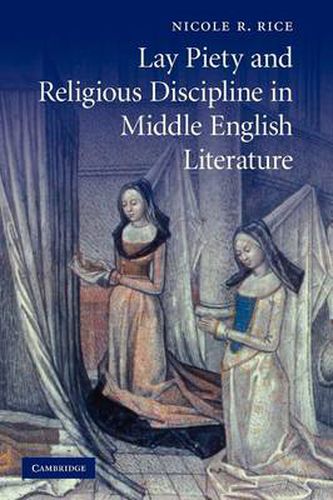Readings Newsletter
Become a Readings Member to make your shopping experience even easier.
Sign in or sign up for free!
You’re not far away from qualifying for FREE standard shipping within Australia
You’ve qualified for FREE standard shipping within Australia
The cart is loading…






In late-fourteenth-century England, the persistent question of how to live the best life preoccupied many pious Christians. One answer was provided by a new genre of prose guides that adapted professional religious rules and routines for lay audiences. These texts engaged with many of the same cultural questions as poets like Langland and Chaucer; however, they have not received the critical attention they deserve until now. Nicole Rice analyses how the idea of religious discipline was translated into varied literary forms in an atmosphere of religious change and controversy. By considering the themes of spiritual discipline, religious identity, and orthodoxy in Langland and Chaucer, the study also brings fresh perspectives to bear on Piers Plowman and The Canterbury Tales. This juxtaposition of spiritual guidance and poetry will form an important contribution to our understanding of both authors and of late medieval religious practice and thought.
$9.00 standard shipping within Australia
FREE standard shipping within Australia for orders over $100.00
Express & International shipping calculated at checkout
In late-fourteenth-century England, the persistent question of how to live the best life preoccupied many pious Christians. One answer was provided by a new genre of prose guides that adapted professional religious rules and routines for lay audiences. These texts engaged with many of the same cultural questions as poets like Langland and Chaucer; however, they have not received the critical attention they deserve until now. Nicole Rice analyses how the idea of religious discipline was translated into varied literary forms in an atmosphere of religious change and controversy. By considering the themes of spiritual discipline, religious identity, and orthodoxy in Langland and Chaucer, the study also brings fresh perspectives to bear on Piers Plowman and The Canterbury Tales. This juxtaposition of spiritual guidance and poetry will form an important contribution to our understanding of both authors and of late medieval religious practice and thought.